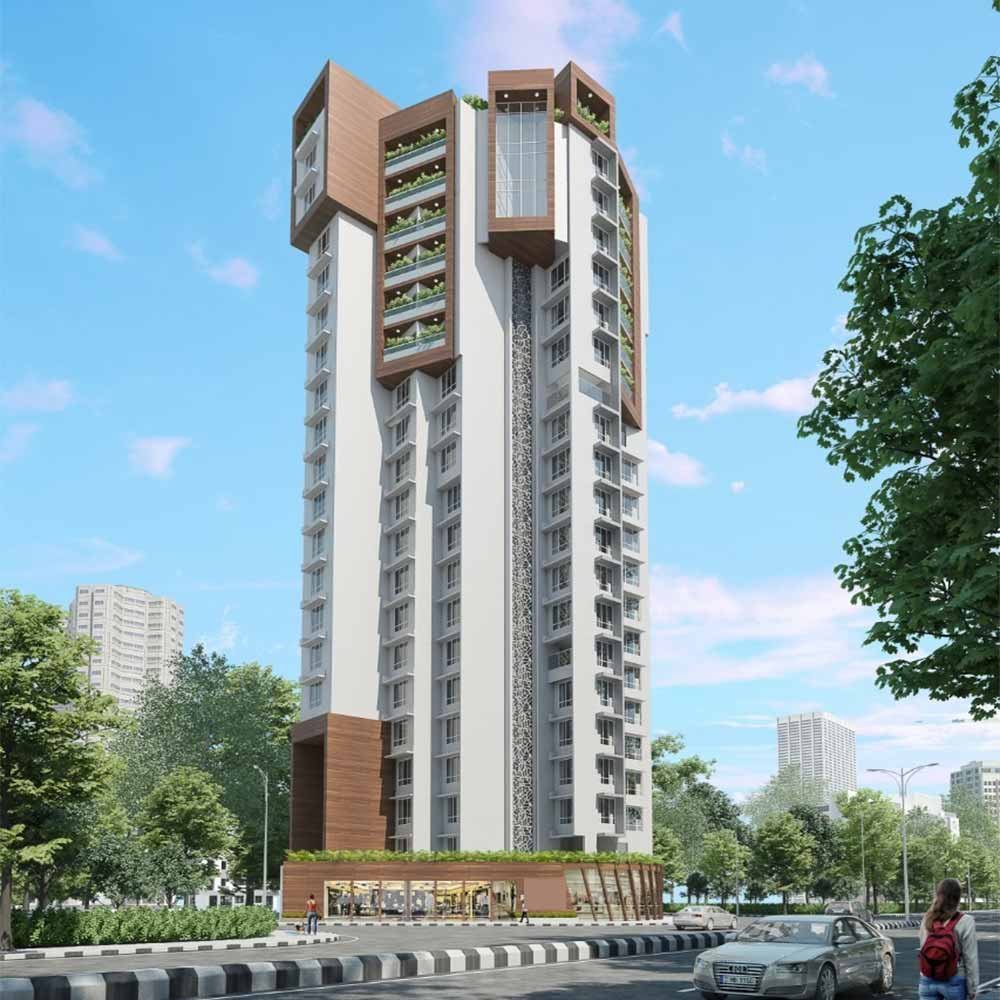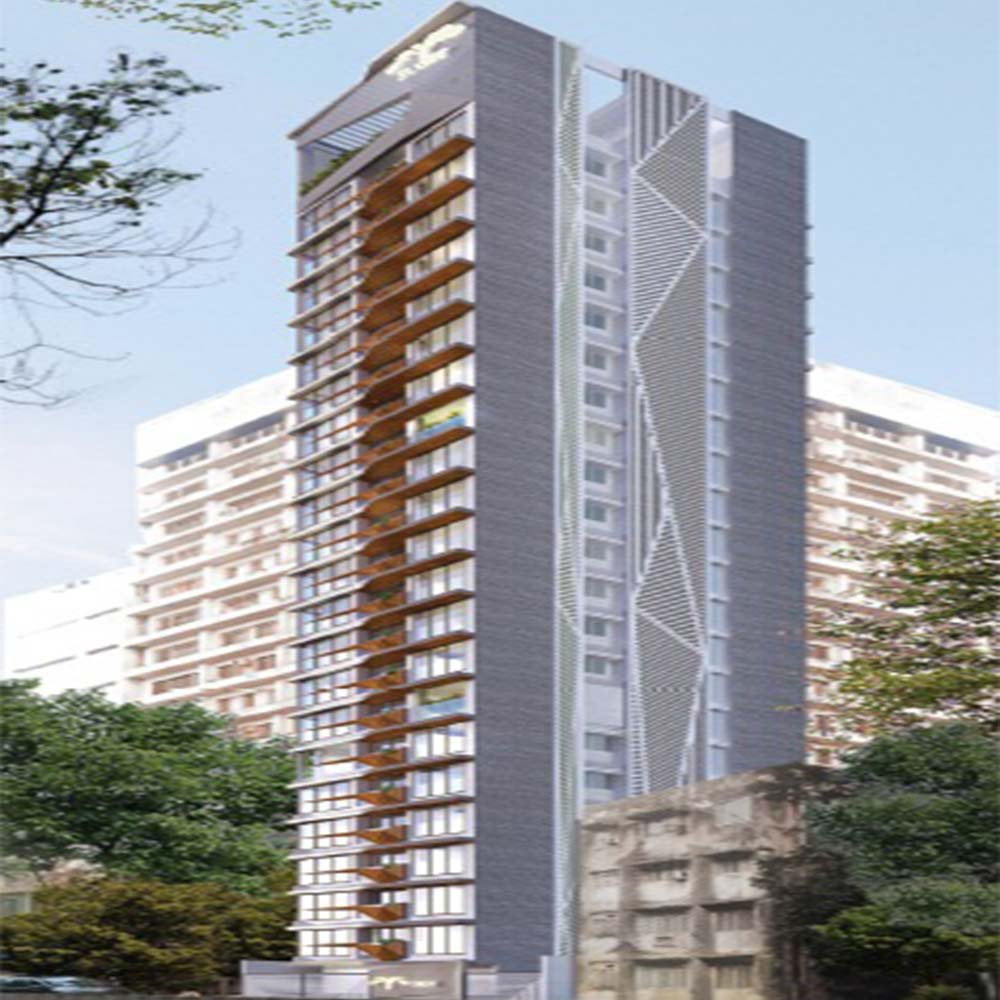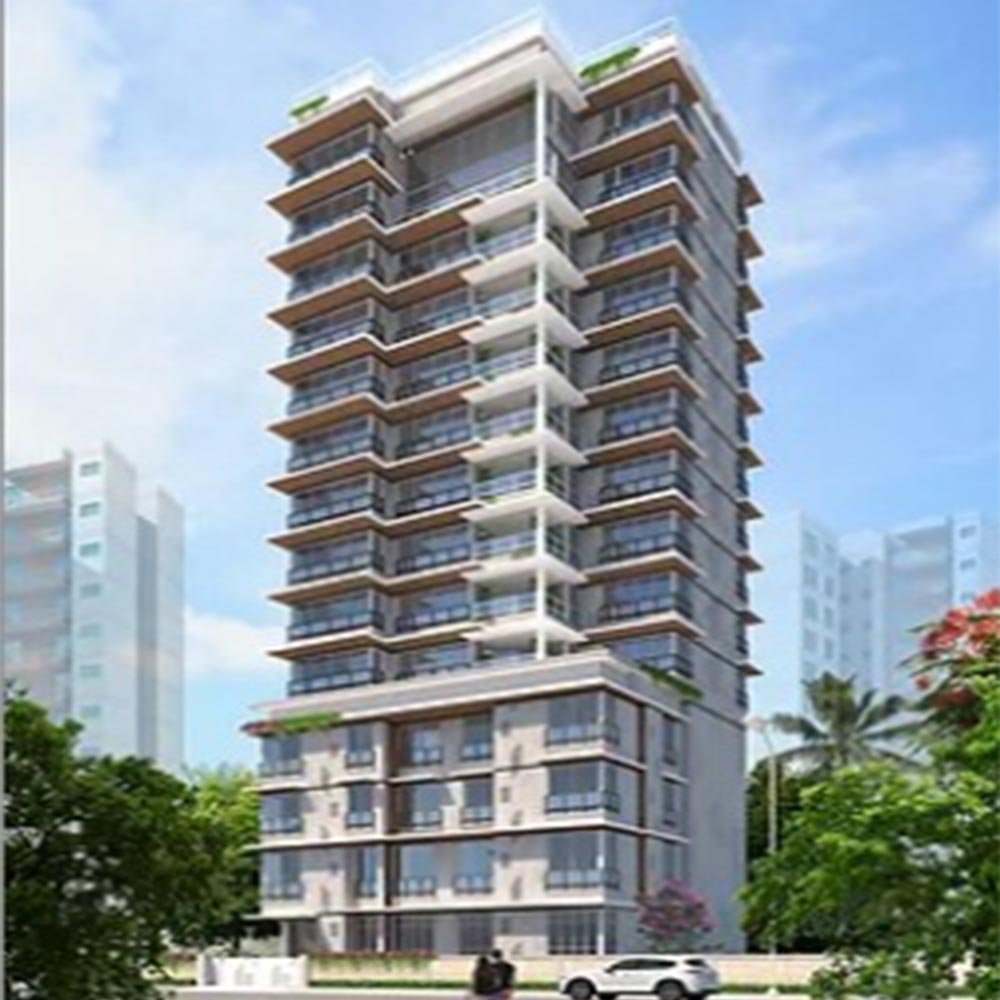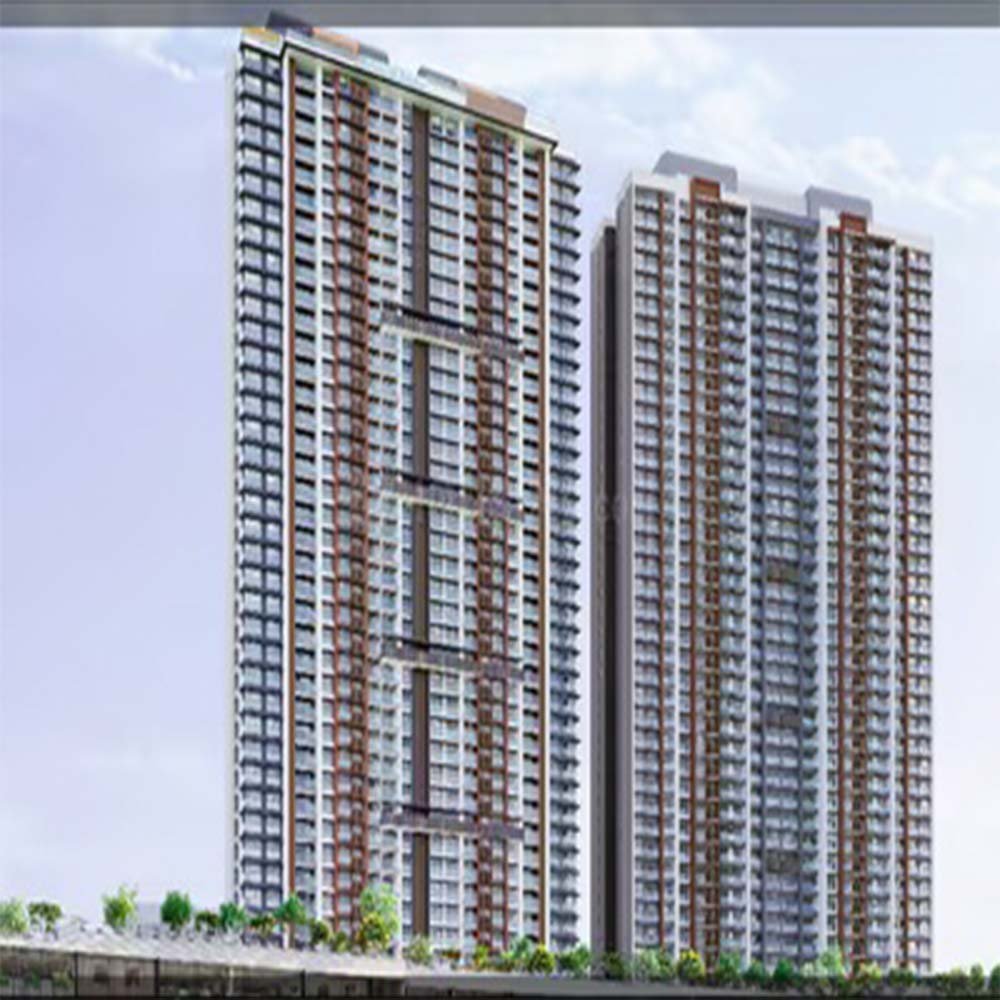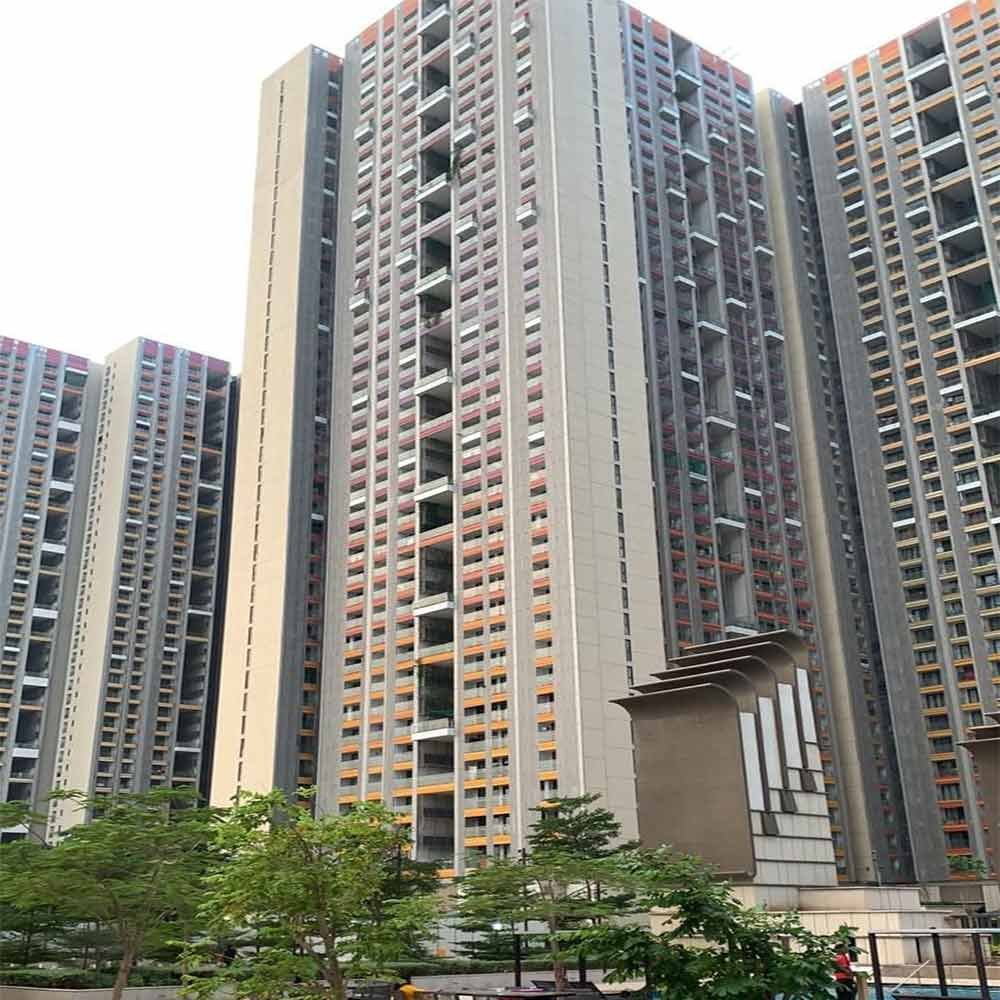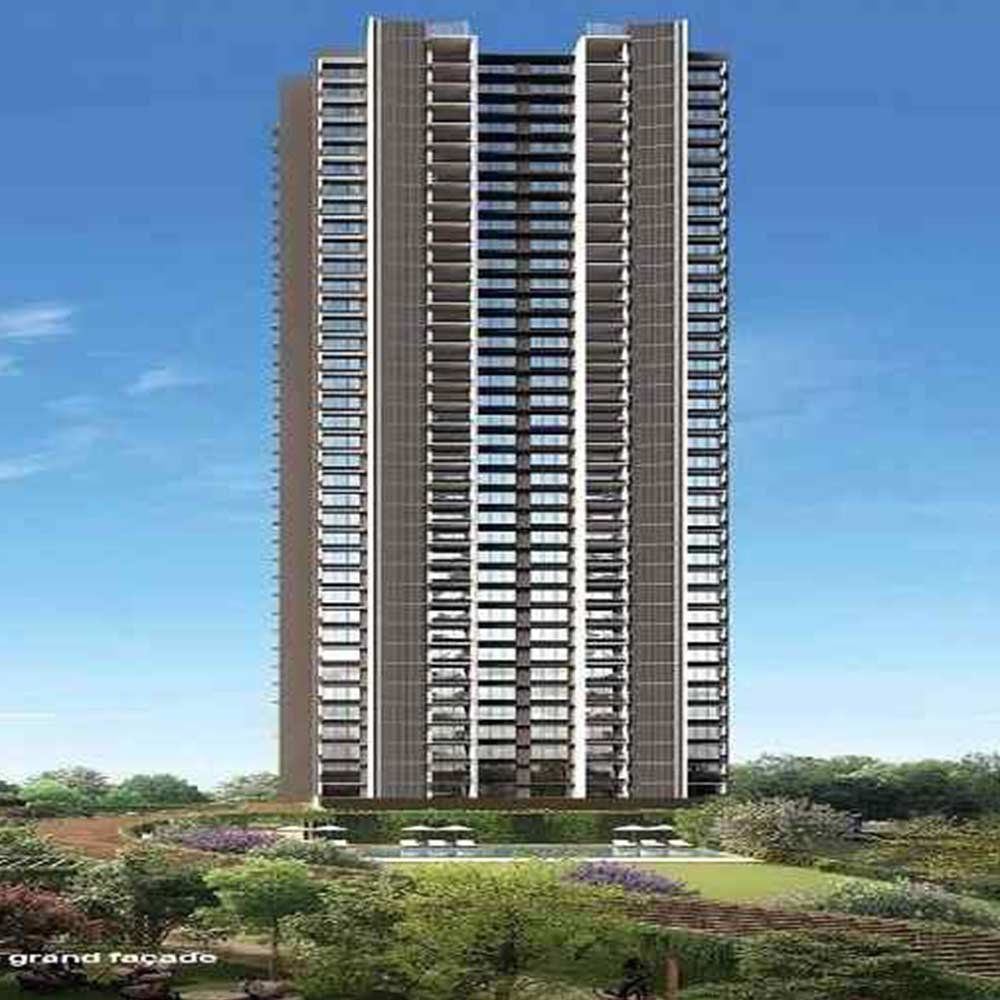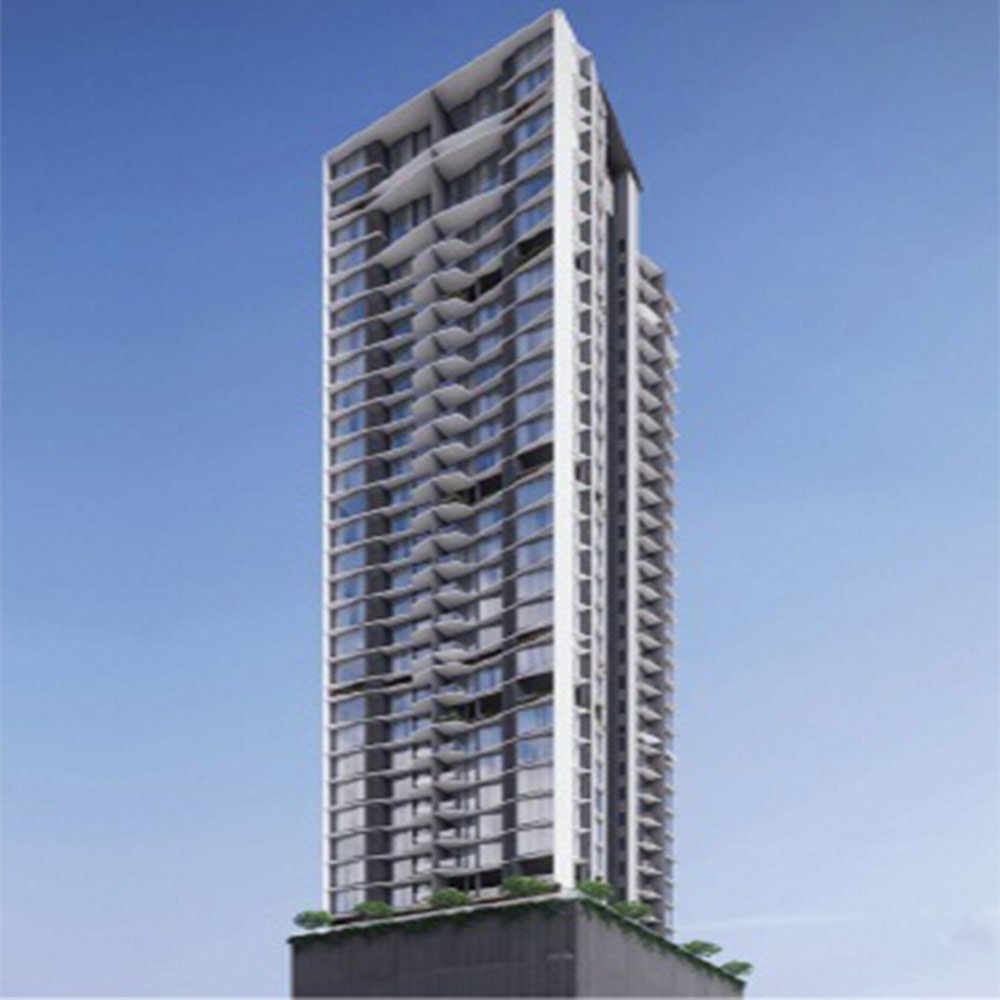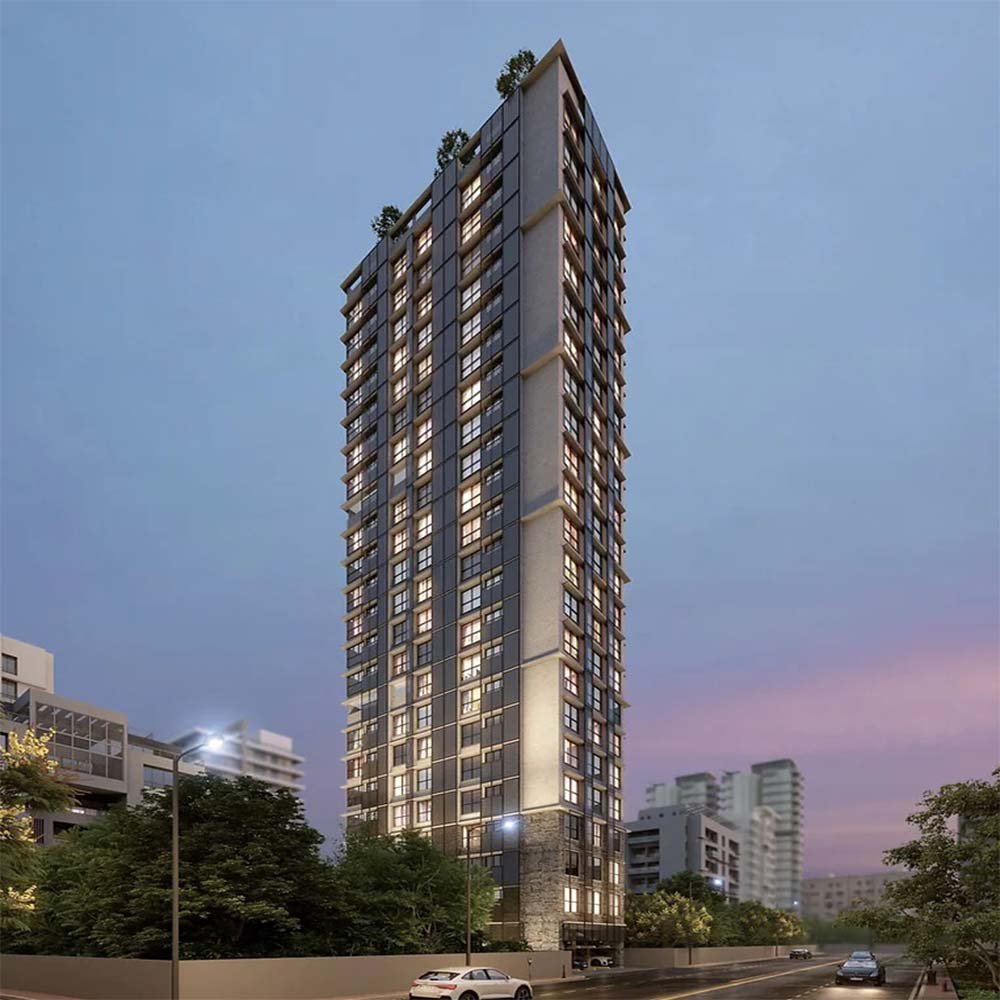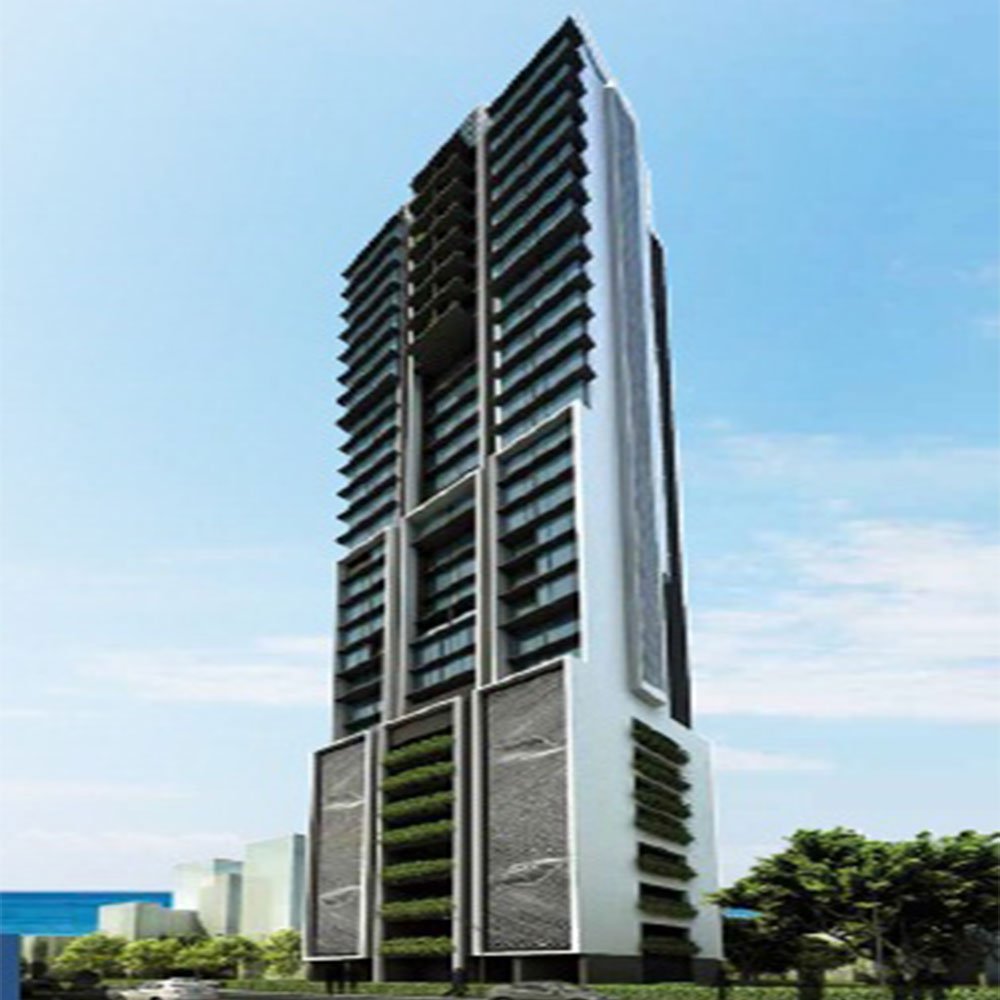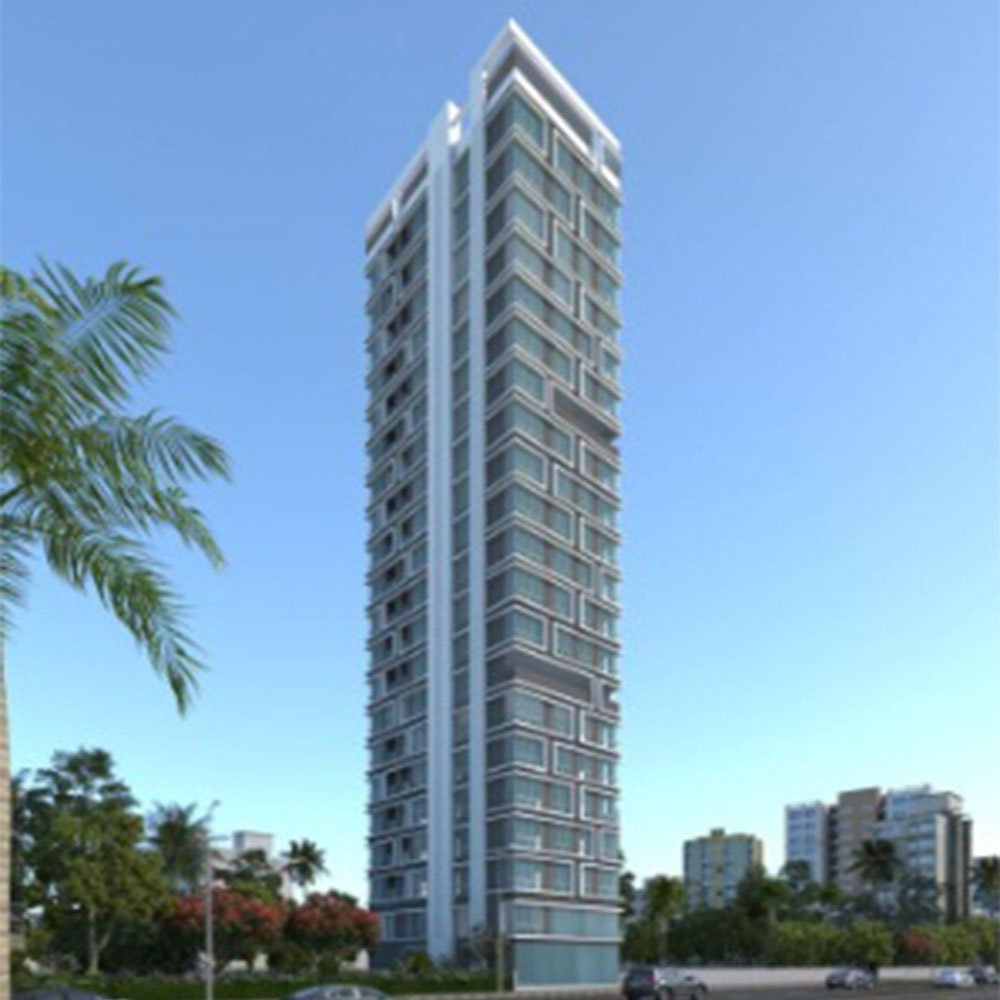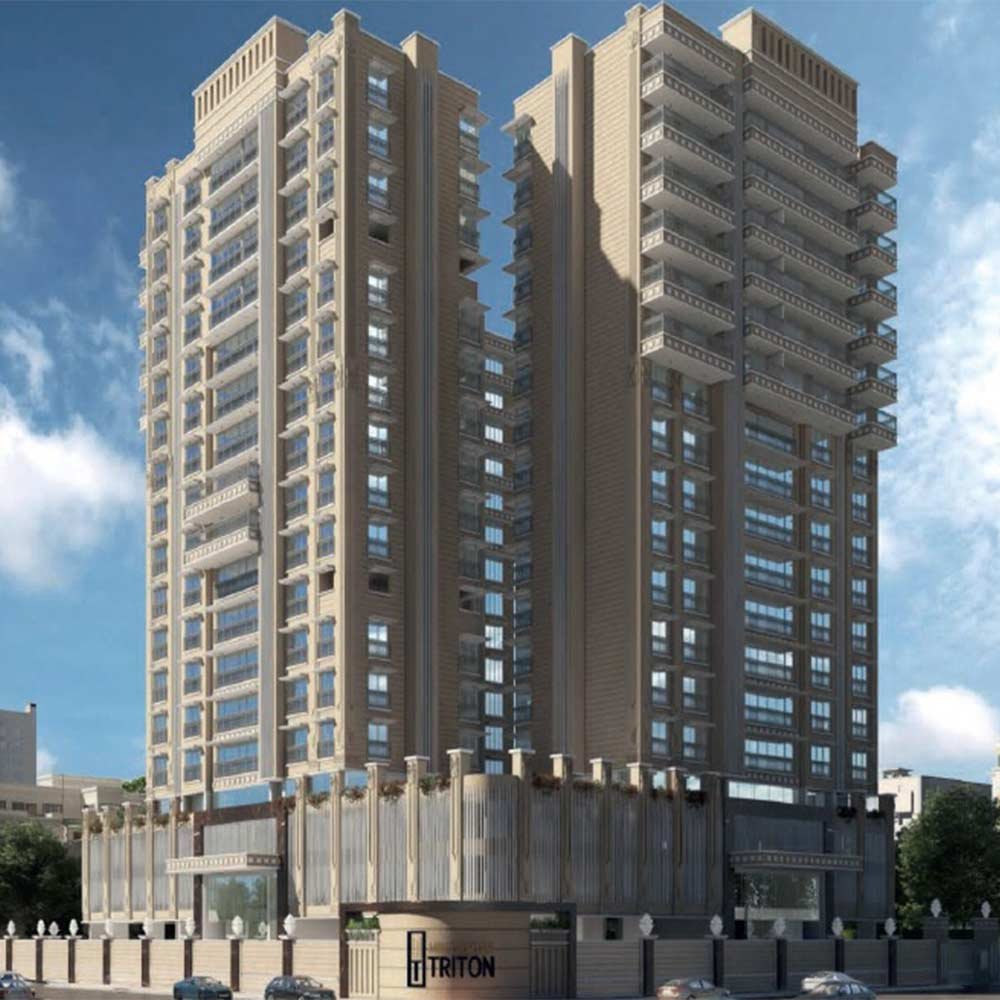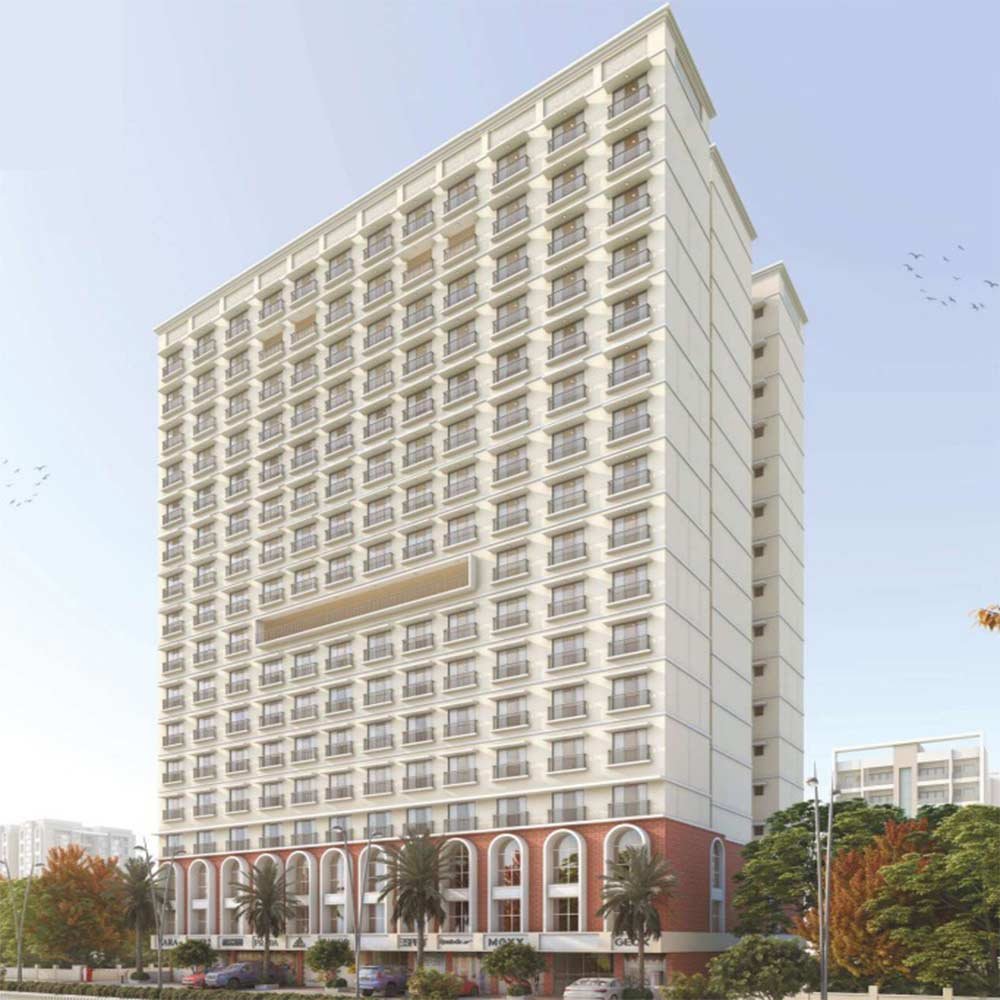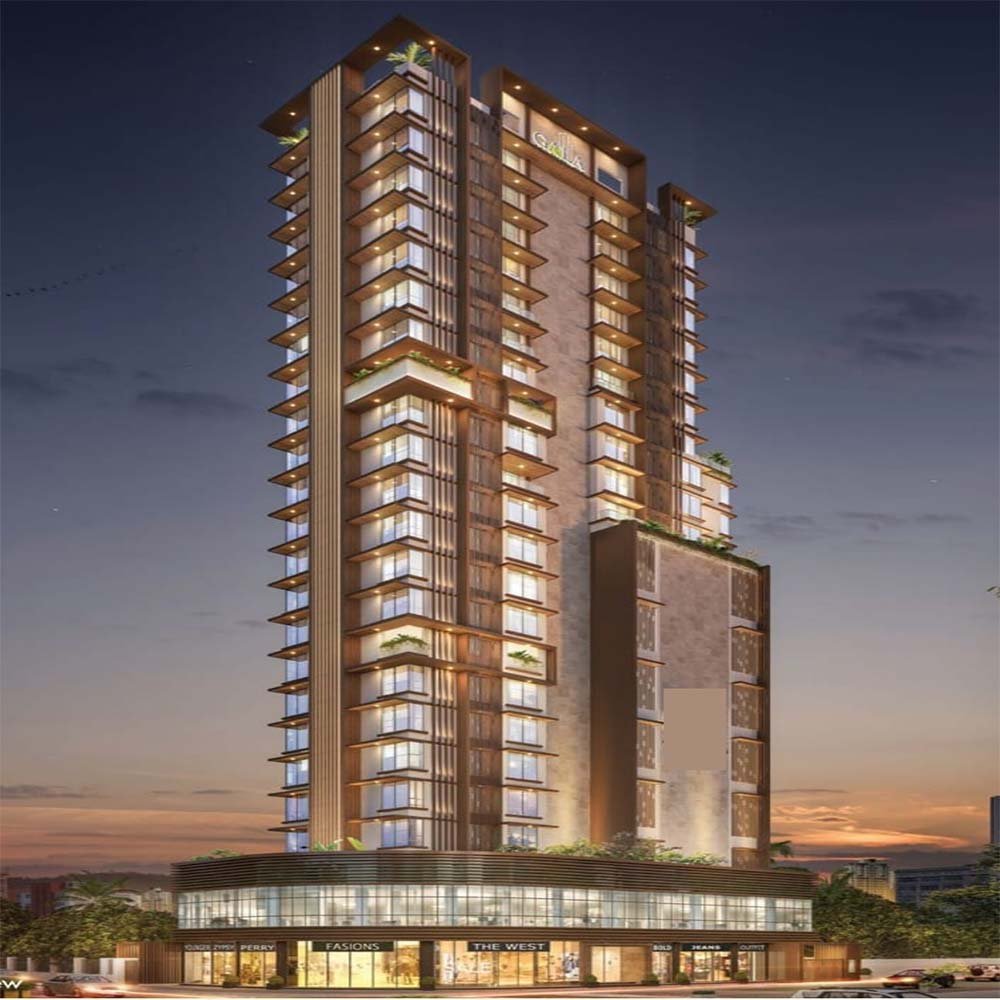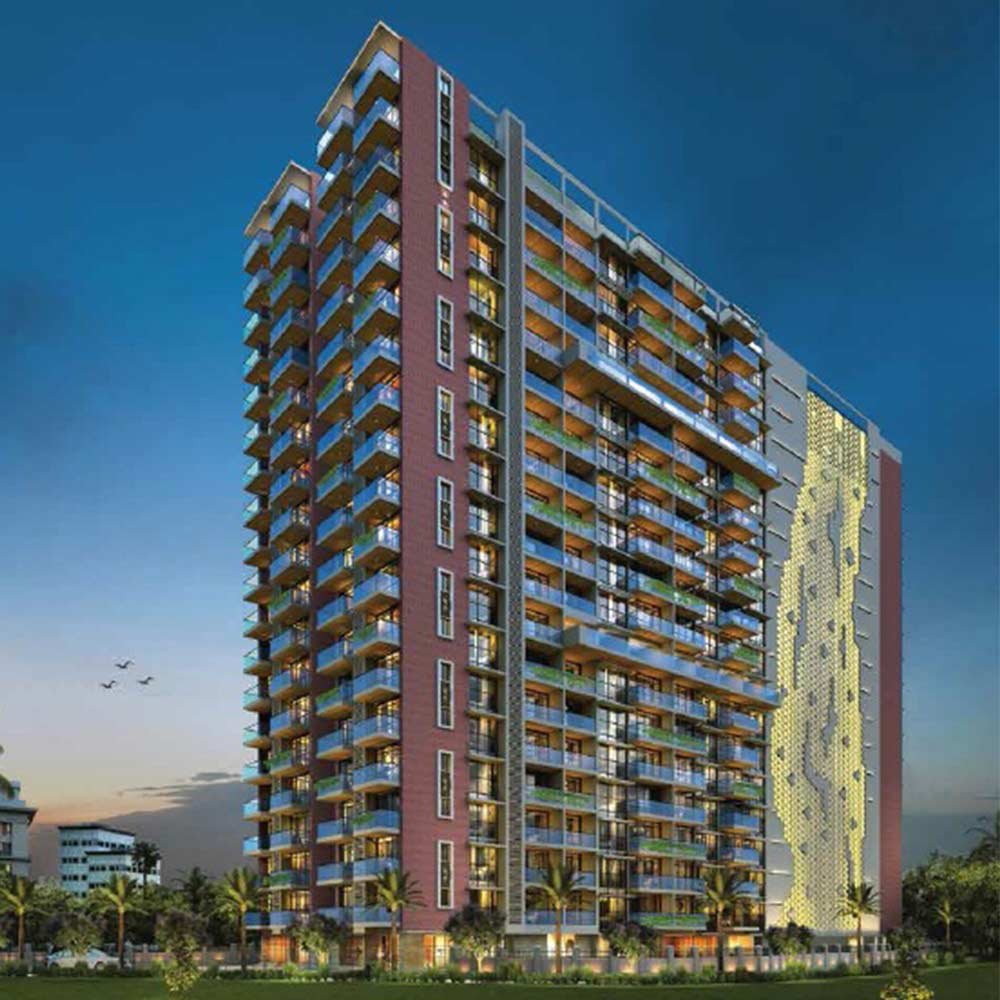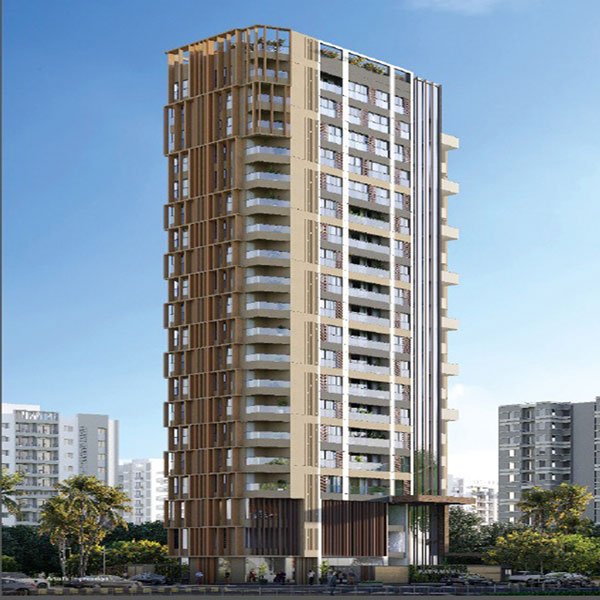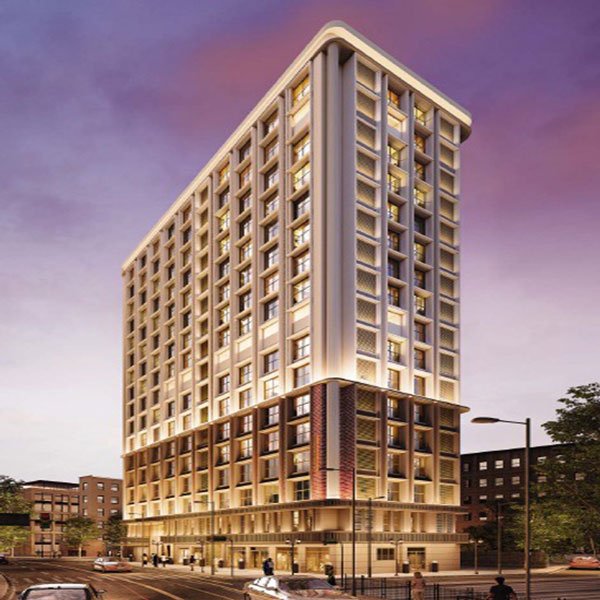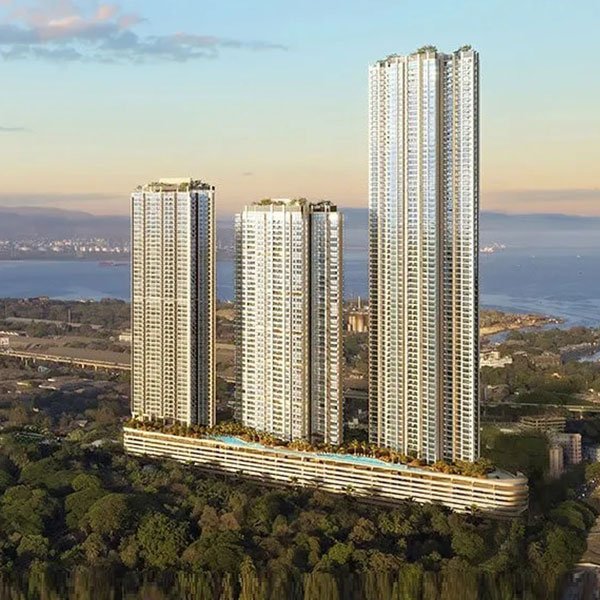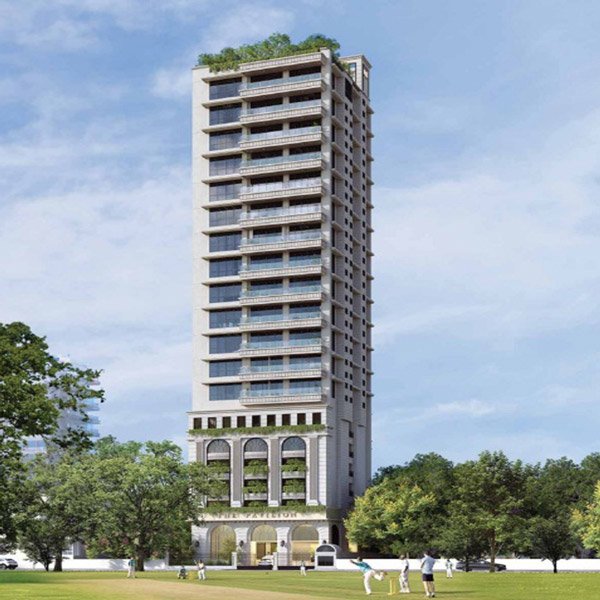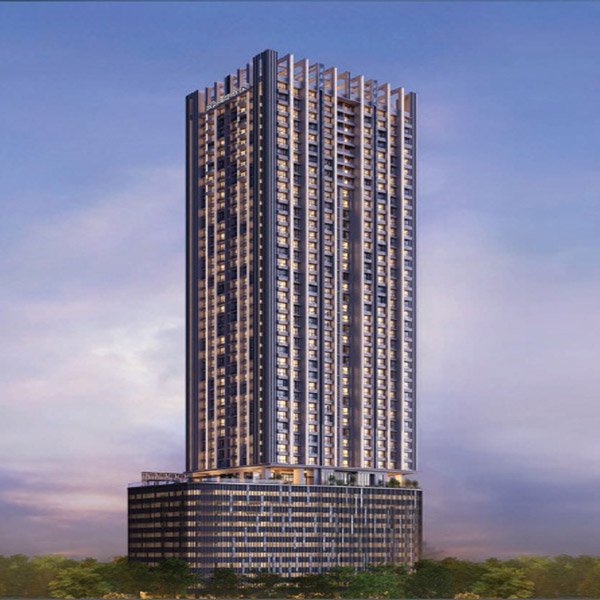Q & A
REFER Q & A FOR Factors to consider before buying a residential property.
Adequate due diligence of a property varies from case to case, it a very exhaustive, technical and cumbersome process, beyond the understanding of a common person.
However, I will try and simplify it for the understanding of a lay person.
I will give you a basic guideline for any property in a registered society.
a. check the original purchase agreement of the intending seller.
b. check the agreements , from the inception to the current one .
c. check the share certificate.
d. check the utility bills like the electricity bill , society maintenance bill , property tax bill .
e. confirm the identity of the intending seller to ensure it matches with the name on the aforementioned documents.
It’s important to note that the person negotiating with you may not necessarily be the property’s owner; they could be a family member, friend, or appointed broker. In such cases, it’s essential to meet the original seller and clarify any discrepancies in the transaction. If meeting the original seller is avoided, it could suggest underlying issues with the property’s title or some underhand dealing, which essentially means trying to make a fast buck on the sly.
Given the complexities involved, I strongly recommend appointing a lawyer to safeguard your interests and ensure the proper documentation to protect you and your legal heirs. It’s crucial to understand that the expertise of a lawyer is invaluable in property transactions and is a non-negotiable aspect of the process.
Remember, the investment in a lawyer is a wise decision and essential for ensuring a secure and legally sound property transaction.
PROTIP: Based on my 40+ years of experience in real estate broking, most brokers will tell you , they can make the agreement for you , but for your own good, DONT fall prey to it , only a lawyer understands the nuances of the deal.
See you next week
However, I will try and simplify it for the understanding of a lay person.
I will give you a basic guideline for any property in a registered society.
a. check the original purchase agreement of the intending seller.
b. check the agreements , from the inception to the current one .
c. check the share certificate.
d. check the utility bills like the electricity bill , society maintenance bill , property tax bill .
e. confirm the identity of the intending seller to ensure it matches with the name on the aforementioned documents.
It’s important to note that the person negotiating with you may not necessarily be the property’s owner; they could be a family member, friend, or appointed broker. In such cases, it’s essential to meet the original seller and clarify any discrepancies in the transaction. If meeting the original seller is avoided, it could suggest underlying issues with the property’s title or some underhand dealing, which essentially means trying to make a fast buck on the sly.
Given the complexities involved, I strongly recommend appointing a lawyer to safeguard your interests and ensure the proper documentation to protect you and your legal heirs. It’s crucial to understand that the expertise of a lawyer is invaluable in property transactions and is a non-negotiable aspect of the process.
Remember, the investment in a lawyer is a wise decision and essential for ensuring a secure and legally sound property transaction.
PROTIP: Based on my 40+ years of experience in real estate broking, most brokers will tell you , they can make the agreement for you , but for your own good, DONT fall prey to it , only a lawyer understands the nuances of the deal.
See you next week
REFER Q & A FOR Factors to consider before buying a residential property.
You , are absolutely right in your assessment, when you say location is more of a emotional decision than a informed one.
Most Indians, me included are bought up to be happy in our comfort zone.
This comfort zone , also contains the area where we have been living for a reasonable amount of time .
Once we are in our comfort zone, we start getting emotionally attached to everything and everyone connected. This is a major disadvantage for most of us , when we are looking to purchase a property. All our logic and commonsense goes out of the window.
However, for the sake of the practical readers ,I will give you a few pointers ,which may help you to take a informed decision.
1. Make a list of all you need in the property, you intend to buy , this includes space. amenities, proximity to essential services, budget etc .
2. Be very clear about the social infrastructure in your desired location, without getting carried away by fancy marketing jargon.
3. Compare the area of your choice and other areas, where your requirements are being met , factoring in the cost of course and all other factors as mentioned above.
4. Go and visit the new locations at various times of the day to get a look and feel of the area , also take into account the travel time from your current location to the new one.
5. Check if any new infrastructure projects are going on in any particular area or are announced, this is a major game changer , which could give you unimaginable returns on your investment.
By taking these few steps ,you would surely be in a reasonable position to make a informed decision.
PROTIP: Older areas and buildings offer you ,bigger properties at lesser values , with lower outgoing , surely they have no amenities to offer compared to the new constructions. Take all factors into consideration before deciding what suits you best.
see you next week with a fresh topic.
Most Indians, me included are bought up to be happy in our comfort zone.
This comfort zone , also contains the area where we have been living for a reasonable amount of time .
Once we are in our comfort zone, we start getting emotionally attached to everything and everyone connected. This is a major disadvantage for most of us , when we are looking to purchase a property. All our logic and commonsense goes out of the window.
However, for the sake of the practical readers ,I will give you a few pointers ,which may help you to take a informed decision.
1. Make a list of all you need in the property, you intend to buy , this includes space. amenities, proximity to essential services, budget etc .
2. Be very clear about the social infrastructure in your desired location, without getting carried away by fancy marketing jargon.
3. Compare the area of your choice and other areas, where your requirements are being met , factoring in the cost of course and all other factors as mentioned above.
4. Go and visit the new locations at various times of the day to get a look and feel of the area , also take into account the travel time from your current location to the new one.
5. Check if any new infrastructure projects are going on in any particular area or are announced, this is a major game changer , which could give you unimaginable returns on your investment.
By taking these few steps ,you would surely be in a reasonable position to make a informed decision.
PROTIP: Older areas and buildings offer you ,bigger properties at lesser values , with lower outgoing , surely they have no amenities to offer compared to the new constructions. Take all factors into consideration before deciding what suits you best.
see you next week with a fresh topic.
Yes, it is fair for a client to ask questions related to the property they are intending to buy. Brokers are typically expected to have knowledge about the properties they are representing and should be able to provide accurate information to clients. It’s important for clients to feel informed and comfortable with their decisions when making such a significant purchase. If you’re working with a broker who is not able to answer your questions, it may be worth seeking out a different professional who can provide the level of service and information you need.
PROTIP: Always try and select a broker of proven pedigree to ensure you get full value for the fees, they are charging you.
After nearly 5 years of RERA implementation, are buyers of under-construction properties fully protected, or is RERA in A toothless tiger?”
RERA is an excellent initiative by the Government to safeguard the buyers of under construction properties.
It gives one, a fair bit of information about the property such as
a. Status of permissions.
b. Floor plans etc
c. Title details
d. Amenities
e. Timelines for project completion.
However none of the above mentioned are watertight, there are several loopholes, which are exploited by developers as and when required.
To sum up the answer to your question, RERA is not a watertight Regulatory Authority, it’s a work in progress, surely the buyers after the introduction of RERA are in a much better situation today, than yesterday.
A lot more needs to be done to make it watertight, only then all buyers will start investing in under construction properties with absolute trust and confidence.
PROTIP: Always try and select a broker of proven pedigree to ensure you get full value for the fees, they are charging you.
After nearly 5 years of RERA implementation, are buyers of under-construction properties fully protected, or is RERA in A toothless tiger?”
RERA is an excellent initiative by the Government to safeguard the buyers of under construction properties.
It gives one, a fair bit of information about the property such as
a. Status of permissions.
b. Floor plans etc
c. Title details
d. Amenities
e. Timelines for project completion.
However none of the above mentioned are watertight, there are several loopholes, which are exploited by developers as and when required.
To sum up the answer to your question, RERA is not a watertight Regulatory Authority, it’s a work in progress, surely the buyers after the introduction of RERA are in a much better situation today, than yesterday.
A lot more needs to be done to make it watertight, only then all buyers will start investing in under construction properties with absolute trust and confidence.
PROTIP: As i keep mentioning repeatedly, when buying any under construction property, try and invest with reputed developers, do your homework diligently and lastly back it all up with information provided by RERA.
See you next week with new questions and answers.
See you next week with new questions and answers.
I have always said this to all my clients, DONT DEPEND ENTIRELY ON THE BROKER.
Be an informed customer, for that you have to be aware and educated about the property, here are a few points which may be useful to you.
1. In today’s day and age, there is a huge amount of data available on the internet, please search and use that data to guide you, kindly note use it purely as a guide not the word of God. I say this because Real Estate is a very case sensitive subject and for your own good should not be generalized.
PROTIP: Don’t draw conclusions about any property on the basis of internet analysis alone, do the hard yards and find out stuff from the real world.
2. Do your homework about your chosen area in which you plan to buy, sell or rent a property. Now that you are better equipped after following step 1 above, call your proposed Broker and ask relevant questions about the property, such as position of demand and supply , the prevailing rates etc , if you get straight and relevant replies, stick onto your Broker otherwise move on.
3. Be very clear and transparent about what role you expect your Broker to play in the transaction, right from sourcing, paperwork to closure of the transaction. If the broker tries to dodge, move onto someone else.
4. Ask whatever question you have in your mind with regards to the property, however amateurish or stupid it may sound. If you get straight answers, you are in good hands, if not, look elsewhere.
5. When you have chosen a broker to work for you, ask questions regarding MAHARERA, GST, STAMP DUTY ETC, which are very basic and each and every broker should know about. If the broker is unable to answer you, then however convinced you were about the person, think twice , these are very elementary and not knowing them is unacceptable.
PROTIP: If a person is a broker by profession, please make no mistake, his objective is to make money to fend for himself and his family, so please be aware, which is fine till it is done in a fair and honest manner. It is your duty to safeguard your money and interest both, so please choose wisely.
See you next week
Be an informed customer, for that you have to be aware and educated about the property, here are a few points which may be useful to you.
1. In today’s day and age, there is a huge amount of data available on the internet, please search and use that data to guide you, kindly note use it purely as a guide not the word of God. I say this because Real Estate is a very case sensitive subject and for your own good should not be generalized.
PROTIP: Don’t draw conclusions about any property on the basis of internet analysis alone, do the hard yards and find out stuff from the real world.
2. Do your homework about your chosen area in which you plan to buy, sell or rent a property. Now that you are better equipped after following step 1 above, call your proposed Broker and ask relevant questions about the property, such as position of demand and supply , the prevailing rates etc , if you get straight and relevant replies, stick onto your Broker otherwise move on.
3. Be very clear and transparent about what role you expect your Broker to play in the transaction, right from sourcing, paperwork to closure of the transaction. If the broker tries to dodge, move onto someone else.
4. Ask whatever question you have in your mind with regards to the property, however amateurish or stupid it may sound. If you get straight answers, you are in good hands, if not, look elsewhere.
5. When you have chosen a broker to work for you, ask questions regarding MAHARERA, GST, STAMP DUTY ETC, which are very basic and each and every broker should know about. If the broker is unable to answer you, then however convinced you were about the person, think twice , these are very elementary and not knowing them is unacceptable.
PROTIP: If a person is a broker by profession, please make no mistake, his objective is to make money to fend for himself and his family, so please be aware, which is fine till it is done in a fair and honest manner. It is your duty to safeguard your money and interest both, so please choose wisely.
See you next week
REFER Q & A FOR IS IT WISE TO DEAL DIRECTLY IN REAL ESTATE WITHOUT BROKERS
Finding a respected and knowledgeable broker can be crucial when transacting in real estate. To ensure you make the right choice, follow these simple steps:
1. Professionalism and Communication: When first contacting a broker, pay attention to their communication style. A professional broker will stick to the topic at hand, demonstrating their expertise and knowledge.
2. Workplace Verification: It is essential to ask the broker about their workplace. Knowing where the broker operates from is crucial for accessibility during the transaction. This aspect becomes especially important when dealing with high-value transactions.
3. Consistency in Contact Information: Check if the broker has been consistently using the same cell phone number over a substantial period. Frequently changing contact details could raise concerns about the broker’s credibility.
4. Regulatory Compliance: While visiting the broker’s workplace, ensure they are registered with RERA (Real Estate Regulatory Authority) and possess a valid GST number. These credentials ensure that the broker operates within the legal framework.
5. Experience and References: Inquire about the broker’s years of experience in the field. Additionally, ask for references and client testimonials. Genuine testimonials and positive references can provide a sense of security and trustworthiness.
6. Property Expertise: Assess the broker’s knowledge about the property in question. Inquire about similar properties in the area, as this demonstrates their familiarity with the market and their ability to meet your requirements.
Remember, relying solely on social media presence or postings is not enough. Online presence can be managed by advertising professionals, so it’s of utmost importance for you to go through the steps and decide.
By following these steps, you can increase the likelihood of selecting a respected and knowledgeable broker who will safeguard your money, interest and advise you whenever required.
1. Professionalism and Communication: When first contacting a broker, pay attention to their communication style. A professional broker will stick to the topic at hand, demonstrating their expertise and knowledge.
2. Workplace Verification: It is essential to ask the broker about their workplace. Knowing where the broker operates from is crucial for accessibility during the transaction. This aspect becomes especially important when dealing with high-value transactions.
3. Consistency in Contact Information: Check if the broker has been consistently using the same cell phone number over a substantial period. Frequently changing contact details could raise concerns about the broker’s credibility.
4. Regulatory Compliance: While visiting the broker’s workplace, ensure they are registered with RERA (Real Estate Regulatory Authority) and possess a valid GST number. These credentials ensure that the broker operates within the legal framework.
5. Experience and References: Inquire about the broker’s years of experience in the field. Additionally, ask for references and client testimonials. Genuine testimonials and positive references can provide a sense of security and trustworthiness.
6. Property Expertise: Assess the broker’s knowledge about the property in question. Inquire about similar properties in the area, as this demonstrates their familiarity with the market and their ability to meet your requirements.
Remember, relying solely on social media presence or postings is not enough. Online presence can be managed by advertising professionals, so it’s of utmost importance for you to go through the steps and decide.
By following these steps, you can increase the likelihood of selecting a respected and knowledgeable broker who will safeguard your money, interest and advise you whenever required.
REFER Q & A FOR Preleased Properties
Ideally, preleased properties should offer higher returns compared to bank deposits, but in reality, several factors come into play. The income from a preleased property depends on various factors, including the type of asset (residential, retail, or offices), location; capital employed, and market conditions.
In Mumbai, for instance, residential properties generally yield returns between 2.5% to 3.5% per annum. This lower return is mainly due to decent appreciation in property value over time and the cultural preference for owning a house rather than renting it out solely for income generation. The saturation of the rental market in residential properties also contributes to the lower returns.
On the other hand, retail properties tend to offer returns between 4% to 5% per annum, while offices can generate returns ranging from 6% to 8% per annum. These returns are based on the time of purchase, and if the property is purchased under construction, an additional 1% to 3% yield can be expected.
Investors often fall into the trap of investing in average locations solely for the sake of higher returns. However, based on over four decades of experience in this industry, it is advisable to invest in good locations to ensure sustained returns even when a tenant vacates the property. Additionally, the size of the investment plays a role, as larger capital employed usually leads to higher returns.
Lastly, the overall market conditions also influence the returns. A healthy and growing market tends to provide better returns compared to a stagnant or unstable market. Thorough research is crucial before investing in any preleased property
Remember, investing in preleased properties requires careful consideration of various factors to maximize returns and minimize risks.
PROTIP: Bank deposits may give you a higher return on paper compared to real estate, there is zero % appreciation in capital deployed in bank deposits and there is no limit to how much a property can appreciate.
In Mumbai, for instance, residential properties generally yield returns between 2.5% to 3.5% per annum. This lower return is mainly due to decent appreciation in property value over time and the cultural preference for owning a house rather than renting it out solely for income generation. The saturation of the rental market in residential properties also contributes to the lower returns.
On the other hand, retail properties tend to offer returns between 4% to 5% per annum, while offices can generate returns ranging from 6% to 8% per annum. These returns are based on the time of purchase, and if the property is purchased under construction, an additional 1% to 3% yield can be expected.
Investors often fall into the trap of investing in average locations solely for the sake of higher returns. However, based on over four decades of experience in this industry, it is advisable to invest in good locations to ensure sustained returns even when a tenant vacates the property. Additionally, the size of the investment plays a role, as larger capital employed usually leads to higher returns.
Lastly, the overall market conditions also influence the returns. A healthy and growing market tends to provide better returns compared to a stagnant or unstable market. Thorough research is crucial before investing in any preleased property
Remember, investing in preleased properties requires careful consideration of various factors to maximize returns and minimize risks.
PROTIP: Bank deposits may give you a higher return on paper compared to real estate, there is zero % appreciation in capital deployed in bank deposits and there is no limit to how much a property can appreciate.
If you’re considering investing in a preleased residential property in Mumbai solely for earning rental income, it may not be the most lucrative option. However, there are several factors to take into consideration.
Do you already own any other residential property in Mumbai. If the answer is no, then it is highly recommended to proceed with the investment as soon as possible. On the other hand, if you already own a residential property in Mumbai, it might be more beneficial to explore investments in preleased retail or office spaces, as they can potentially offer higher returns.
By diversifying your portfolio and exploring different real estate options, you have the opportunity to earn almost double the returns. Keep in mind that real estate investments can be influenced by various factors, including market conditions, location, and demand. It is advisable to conduct thorough research and seek professional advice before making any investment in real estate.
Do you already own any other residential property in Mumbai. If the answer is no, then it is highly recommended to proceed with the investment as soon as possible. On the other hand, if you already own a residential property in Mumbai, it might be more beneficial to explore investments in preleased retail or office spaces, as they can potentially offer higher returns.
By diversifying your portfolio and exploring different real estate options, you have the opportunity to earn almost double the returns. Keep in mind that real estate investments can be influenced by various factors, including market conditions, location, and demand. It is advisable to conduct thorough research and seek professional advice before making any investment in real estate.
REFER Q & A FOR Redevelopment Part 4
“If the developers fail to honor their pre-committed quality of construction, amenities, and obtaining the required Occupancy Certificate (OC), it is essential to take appropriate action. Prior to answering your question, I recommend the following steps:
1. Check the agreement: Verify if a qualified professional has thoroughly reviewed the agreement between past owners and developers. Has it been clearly established that the developers have failed to fulfill their agreed-upon terms? Check thoroughly without assuming, remember what is written and signed matters, other things don’t.
2. Assess society representatives: Discreetly find out if any assigned representative of the society has approached and received special favors from the developers, which are not as per the agreed terms for everyone.
3. Seek resolution: If you find evidence of developer negligence, schedule an appointment with the developers or their representatives. Based on my extensive experience in this field, i will strongly urge you to try and resolve the issues amicably, the developers’ reputation and goodwill are at stake, so in most cases one does reach an amicable solution.
4. Legal recourse: If you are unsatisfied with their proposed solutions, consult a knowledgeable professional and file an official complaint with MahaRera, providing proper documentary evidence to support your claims.
5. Consumer forums: Alternatively, you can approach consumer forums, such as the SUB DISTRICT FORUM and THE STATES COMMISSION, which specialize in dispute resolution.
6. Documented evidence: Remember, only documented evidence holds legal weight. Verbal assurances and promises have no substantial legal value whatsoever.
PROTIP: Avoid confrontations with the developers. Many people get carried away with hearsay and instigation from so called well-wishers who have nothing to do with the property. By pursuing amicable solutions, you can avoid damage to your relationship with the developers.
This concludes our discussion on redevelopment. Stay tuned for next week’s session, where we’ll address queries on other real estate topics.”
1. Check the agreement: Verify if a qualified professional has thoroughly reviewed the agreement between past owners and developers. Has it been clearly established that the developers have failed to fulfill their agreed-upon terms? Check thoroughly without assuming, remember what is written and signed matters, other things don’t.
2. Assess society representatives: Discreetly find out if any assigned representative of the society has approached and received special favors from the developers, which are not as per the agreed terms for everyone.
3. Seek resolution: If you find evidence of developer negligence, schedule an appointment with the developers or their representatives. Based on my extensive experience in this field, i will strongly urge you to try and resolve the issues amicably, the developers’ reputation and goodwill are at stake, so in most cases one does reach an amicable solution.
4. Legal recourse: If you are unsatisfied with their proposed solutions, consult a knowledgeable professional and file an official complaint with MahaRera, providing proper documentary evidence to support your claims.
5. Consumer forums: Alternatively, you can approach consumer forums, such as the SUB DISTRICT FORUM and THE STATES COMMISSION, which specialize in dispute resolution.
6. Documented evidence: Remember, only documented evidence holds legal weight. Verbal assurances and promises have no substantial legal value whatsoever.
PROTIP: Avoid confrontations with the developers. Many people get carried away with hearsay and instigation from so called well-wishers who have nothing to do with the property. By pursuing amicable solutions, you can avoid damage to your relationship with the developers.
This concludes our discussion on redevelopment. Stay tuned for next week’s session, where we’ll address queries on other real estate topics.”
REFER Q & A FOR Redevelopment Part 3
In the process of redevelopment, it is crucial to be aware of and to follow various guidelines set by the government to ensure the sustainable growth and efficient utilization of the city’s infrastructure. Following these guidelines helps prevent misuse of the already over burdened infrastructure and ensures the long-term sustainability of new constructions.
One of the key guidelines to be mindful of is the Development Control Rules (DCR). DCR furnishes detailed regulations related to new constructions, such as the maximum height allowable for a structure, the required open space in the premises after construction, and provisions for parking. Adhering to DCR guidelines is essential for maintaining uniformity and order in a city like Mumbai.
Another vital aspect to consider is the Floor Space Index (FSI), which determines the maximum permitted construction area based on factors like road width. Complying with FSI guidelines ensures optimal land utilization and prevents excessive congestion, as has been explained in detail in one of my earlier posts.
For redevelopment under the Slum Rehabilitation Authority (SRA), separate and specific guidelines must be followed. Qualified professionals are required to provide comprehensive reports on the dos and don’ts for such projects, ensuring the effective rehabilitation of slum dwellers and optimising returns for the developers.
Preserving heritage structures is of utmost importance, especially in areas like South Mumbai. Special regulations have been implemented to safeguard these historical landmarks, and strict guidelines must be adhered to when redeveloping such structures.
Additionally, acquiring environmental clearances is a crucial step in the redevelopment process. Stringent guidelines are in place to protect the environment from further degradation while allowing for sustainable development.
Engaging professional expertise is highly recommended to maximize returns and navigate through the complexities of property redevelopment. These professionals possess the knowledge and experience to ensure compliance with all the necessary guidelines and regulations.
In summary, adhering to government guidelines for redevelopment is essential for sustainable growth, optimal resource utilization, and the preservation of cultural heritage. Effective implementation of these guidelines, with the assistance of qualified professionals, will contribute to the overall success of any redevelopment project.
One of the key guidelines to be mindful of is the Development Control Rules (DCR). DCR furnishes detailed regulations related to new constructions, such as the maximum height allowable for a structure, the required open space in the premises after construction, and provisions for parking. Adhering to DCR guidelines is essential for maintaining uniformity and order in a city like Mumbai.
Another vital aspect to consider is the Floor Space Index (FSI), which determines the maximum permitted construction area based on factors like road width. Complying with FSI guidelines ensures optimal land utilization and prevents excessive congestion, as has been explained in detail in one of my earlier posts.
For redevelopment under the Slum Rehabilitation Authority (SRA), separate and specific guidelines must be followed. Qualified professionals are required to provide comprehensive reports on the dos and don’ts for such projects, ensuring the effective rehabilitation of slum dwellers and optimising returns for the developers.
Preserving heritage structures is of utmost importance, especially in areas like South Mumbai. Special regulations have been implemented to safeguard these historical landmarks, and strict guidelines must be adhered to when redeveloping such structures.
Additionally, acquiring environmental clearances is a crucial step in the redevelopment process. Stringent guidelines are in place to protect the environment from further degradation while allowing for sustainable development.
Engaging professional expertise is highly recommended to maximize returns and navigate through the complexities of property redevelopment. These professionals possess the knowledge and experience to ensure compliance with all the necessary guidelines and regulations.
In summary, adhering to government guidelines for redevelopment is essential for sustainable growth, optimal resource utilization, and the preservation of cultural heritage. Effective implementation of these guidelines, with the assistance of qualified professionals, will contribute to the overall success of any redevelopment project.
REFER Q & A FOR Redevelopment Part 2
I’ll try and provide a simplified explanation of conveyance for a layman’s understanding. Please note that I am not a legal professional, and readers should consult a lawyer for accurate advice. This is purely on the basis of my 40 + years of service in real estate consultancy.
Conveyance refers to the transfer of land ownership from developers to the society. Once construction is completed and all legal requirements are fulfilled, developers are responsible for carrying out this transfer within a reasonable timeframe.
During the conveyance process, a conveyance deed is typically prepared. This document specifies details such as the land size, ownership information, and safeguards the buyers from any potential wrongdoing by the developers, such as unauthorized construction or encumbrances on the land.
Before the conveyance deed is registered, certain steps must be followed:
1. Form and register a society: Buyers from different locations come together to form a society, as per the provisions of the Maharashtra Cooperative Societies Act 1960.
2. Gather necessary documents: Various documents, including the land title and permissions from relevant authorities, are required to register the conveyance deed. It is highly recommended to seek assistance from a professional lawyer for a robust and legally secure deed.
3. Approach the Registrar: Once the required documents are gathered, they need to be submitted to the Registrar for approval. Only after obtaining approval can the process of registering the conveyance deed proceed.
4. Pay stamp duty and registration charges: After approval from the Registrar, the stamp duty and registration authorities must be approached to determine the amount of duty and make the necessary payment.
5. Register the conveyance deed: The final step involves appointing office bearers from the society to visit the Registration office along with the developers. By registering the conveyance deed, the society becomes the legal owner of the land.
I have provided a simplified explanation for a common man’s understanding. However, it’s important to verify any omissions or errors with qualified lawyers, as this process can be complex.
Conveyance refers to the transfer of land ownership from developers to the society. Once construction is completed and all legal requirements are fulfilled, developers are responsible for carrying out this transfer within a reasonable timeframe.
During the conveyance process, a conveyance deed is typically prepared. This document specifies details such as the land size, ownership information, and safeguards the buyers from any potential wrongdoing by the developers, such as unauthorized construction or encumbrances on the land.
Before the conveyance deed is registered, certain steps must be followed:
1. Form and register a society: Buyers from different locations come together to form a society, as per the provisions of the Maharashtra Cooperative Societies Act 1960.
2. Gather necessary documents: Various documents, including the land title and permissions from relevant authorities, are required to register the conveyance deed. It is highly recommended to seek assistance from a professional lawyer for a robust and legally secure deed.
3. Approach the Registrar: Once the required documents are gathered, they need to be submitted to the Registrar for approval. Only after obtaining approval can the process of registering the conveyance deed proceed.
4. Pay stamp duty and registration charges: After approval from the Registrar, the stamp duty and registration authorities must be approached to determine the amount of duty and make the necessary payment.
5. Register the conveyance deed: The final step involves appointing office bearers from the society to visit the Registration office along with the developers. By registering the conveyance deed, the society becomes the legal owner of the land.
I have provided a simplified explanation for a common man’s understanding. However, it’s important to verify any omissions or errors with qualified lawyers, as this process can be complex.
Deemed conveyance in Mumbai refers to a legal provision that allows a cooperative housing society to obtain the conveyance deed of the property, even if the builder or developer has failed to initiate the process or has refused to transfer the title in the society’s name.
In most cases, developers are legally obligated to execute and register the conveyance deed in favor of the society within a specified time after the formation of the society. However, in some instances, developers may delay or neglect this process, which can create problems for the society and its members.
To address this issue, the Maharashtra Ownership Flats (Regulation of the Promotion, Construction, Sale, Management, and Transfer) Act, 1963, and subsequent amendments, introduced the concept of deemed conveyance. This provision enables a cooperative housing society to apply for conveyance, even without the builder’s participation.
For a society to seek deemed conveyance, certain criteria must be fulfilled, including:
1. The society should be legally registered and possess the necessary documents.
If the documents are missing, the same can be obtained by filing a RTI with the concerned authorities.
2. The society must have completed the time period given to the builder for executing the conveyance deed.
3. The society should have made a formal application to the builder for conveyance, which the builder has failed to comply with within a reasonable time.
4. The society must have fulfilled all its financial obligations towards the developers.
Once these conditions are met, the society can apply to the District Deputy Registrar (DDR) or the Competent Authority for deemed conveyance. The authority will then investigate the matter, conduct hearings, and eventually issue an order for the transfer of the property’s title to the society.
Deemed conveyance provides a legal recourse for housing societies in Mumbai to obtain the ownership rights of their property, even in the absence of cooperation from the builder or developer. It aims to protect the interests of buyers and ensure that the legal transfer of property takes place in a timely manner.
This has to be done , to ensure the society is the legal owner of the land , all incremental FSI etc are not to be used by any other agency ,including the developers but the Society and its members only.
In most cases, developers are legally obligated to execute and register the conveyance deed in favor of the society within a specified time after the formation of the society. However, in some instances, developers may delay or neglect this process, which can create problems for the society and its members.
To address this issue, the Maharashtra Ownership Flats (Regulation of the Promotion, Construction, Sale, Management, and Transfer) Act, 1963, and subsequent amendments, introduced the concept of deemed conveyance. This provision enables a cooperative housing society to apply for conveyance, even without the builder’s participation.
For a society to seek deemed conveyance, certain criteria must be fulfilled, including:
1. The society should be legally registered and possess the necessary documents.
If the documents are missing, the same can be obtained by filing a RTI with the concerned authorities.
2. The society must have completed the time period given to the builder for executing the conveyance deed.
3. The society should have made a formal application to the builder for conveyance, which the builder has failed to comply with within a reasonable time.
4. The society must have fulfilled all its financial obligations towards the developers.
Once these conditions are met, the society can apply to the District Deputy Registrar (DDR) or the Competent Authority for deemed conveyance. The authority will then investigate the matter, conduct hearings, and eventually issue an order for the transfer of the property’s title to the society.
Deemed conveyance provides a legal recourse for housing societies in Mumbai to obtain the ownership rights of their property, even in the absence of cooperation from the builder or developer. It aims to protect the interests of buyers and ensure that the legal transfer of property takes place in a timely manner.
This has to be done , to ensure the society is the legal owner of the land , all incremental FSI etc are not to be used by any other agency ,including the developers but the Society and its members only.
REFER Q & A FOR Redevelopment
Hi there! I understand that getting all owners to agree to a redevelopment can be challenging, especially when there are differing opinions and a lack of consensus.
Based on my work experience of 40 + years in real estate consultancy, here are a few steps you can take to encourage everyone to reach a common ground,
1. Establish a platform or regular meetings where owners can openly discuss and share their concerns, ideas, and opinions about the redevelopment. Encourage respectful and constructive conversations to create an environment where everyone feels heard.
2. Share information about the benefits of the redevelopment project with all the owners, highlighting how it can improve the quality of living, with a huge increase in property value. Provide factual data and examples to address any misconceptions or concerns they may have.
3. If there are certain owners who are particularly resistant or feel the need to demonstrate their knowledge, try to engage with them one-on-one. Listen to their concerns, provide clarifications, and explain how the redevelopment can address their specific issues. Sometimes, personal attention can help dispel misunderstandings or alleviate fears.
4. In discussions, encourage owners to find common points and areas of agreement. Focus on the collective benefits and find compromises that address the concerns raised by various members of the society. It may require some flexibility and adjustments to the plans, but finding common ground is essential for progressing with the redevelopment project. Each redevelopment project starts with man management and effective tackling of inflated egos.
5. Once discussions have been held and compromises have been made, propose a formal vote on the redevelopment project. Ensure that all owners have a fair chance to voice their opinion through the voting process. Establish clear guidelines for the voting process to make it transparent and democratic.
Remember, reaching a consensus can take time, and it might not be achievable in every situation. However, by promoting open communication, educating owners, addressing concerns, and finding compromises, you can increase the likelihood of everyone reaching a common ground.
1. Establish a platform or regular meetings where owners can openly discuss and share their concerns, ideas, and opinions about the redevelopment. Encourage respectful and constructive conversations to create an environment where everyone feels heard.
2. Share information about the benefits of the redevelopment project with all the owners, highlighting how it can improve the quality of living, with a huge increase in property value. Provide factual data and examples to address any misconceptions or concerns they may have.
3. If there are certain owners who are particularly resistant or feel the need to demonstrate their knowledge, try to engage with them one-on-one. Listen to their concerns, provide clarifications, and explain how the redevelopment can address their specific issues. Sometimes, personal attention can help dispel misunderstandings or alleviate fears.
4. In discussions, encourage owners to find common points and areas of agreement. Focus on the collective benefits and find compromises that address the concerns raised by various members of the society. It may require some flexibility and adjustments to the plans, but finding common ground is essential for progressing with the redevelopment project. Each redevelopment project starts with man management and effective tackling of inflated egos.
5. Once discussions have been held and compromises have been made, propose a formal vote on the redevelopment project. Ensure that all owners have a fair chance to voice their opinion through the voting process. Establish clear guidelines for the voting process to make it transparent and democratic.
Remember, reaching a consensus can take time, and it might not be achievable in every situation. However, by promoting open communication, educating owners, addressing concerns, and finding compromises, you can increase the likelihood of everyone reaching a common ground.
From a common man’s point of view, assuming that your society land is automatically eligible for maximum FSI (Floor Space Index) means thinking that you can build as much as you want on your land without any restrictions. However, this is not the case in reality.
FSI is a vital parameter in urban planning that governs the maximum allowable construction on a given piece of land. It determines how much built-up area can be developed on a plot of land. The FSI is determined by local authorities and is usually based on factors such as the size of the plot, its location, infrastructure availability, and the surrounding environment.
It is crucial to understand that not all lands are eligible for maximum FSI. The eligibility for FSI is determined by various factors, including government policies, regulations, and the specifics of the area where the land is located.
Assuming that your society land automatically qualifies for maximum FSI can lead to misconceptions and misunderstandings. It may result in misplaced expectations and conflicts, especially when it comes to redevelopment projects. These assumptions can disrupt the smooth execution of redevelopment plans and create disputes among the society members or with the authorities.
To avoid such issues, it is essential to consult professionals in the field, such as Project Management Consultants or Architects. These experts can assess the land’s eligibility for maximum FSI based on the specific regulations and policies applicable to your area. They can guide you through the process and help you understand the constraints and possibilities associated with redevelopment.
By seeking professional guidance and understanding the factual limitations, you can make informed decisions about your society land and avoid unnecessary disputes or setbacks. Always remember that assumptions without proper verification can lead to misunderstandings and complications in matters as crucial as FSI and land redevelopment.
FSI is a vital parameter in urban planning that governs the maximum allowable construction on a given piece of land. It determines how much built-up area can be developed on a plot of land. The FSI is determined by local authorities and is usually based on factors such as the size of the plot, its location, infrastructure availability, and the surrounding environment.
It is crucial to understand that not all lands are eligible for maximum FSI. The eligibility for FSI is determined by various factors, including government policies, regulations, and the specifics of the area where the land is located.
Assuming that your society land automatically qualifies for maximum FSI can lead to misconceptions and misunderstandings. It may result in misplaced expectations and conflicts, especially when it comes to redevelopment projects. These assumptions can disrupt the smooth execution of redevelopment plans and create disputes among the society members or with the authorities.
To avoid such issues, it is essential to consult professionals in the field, such as Project Management Consultants or Architects. These experts can assess the land’s eligibility for maximum FSI based on the specific regulations and policies applicable to your area. They can guide you through the process and help you understand the constraints and possibilities associated with redevelopment.
By seeking professional guidance and understanding the factual limitations, you can make informed decisions about your society land and avoid unnecessary disputes or setbacks. Always remember that assumptions without proper verification can lead to misunderstandings and complications in matters as crucial as FSI and land redevelopment.
REFER Q & A FOR Fractional Ownership In Properties
In fractional ownership, it is unlikely that you will get a property at fair market value. This is because when multiple people invest in one property, there are additional costs involved, which will raise the overall property price. The organization facilitating the fractional ownership will factor in these expenses when determining the investment cost per share.
Negotiation may not be possible in fractional ownership. Even if it seems like you have negotiated on the price, there is a chance that the sale value has already been inflated by the seller or the organization managing the fractional ownership. This can limit your ability to negotiate a lower price.
In fractional ownership, determining the price for purchasing your share in properties can vary depending on the specific arrangement. As an investor, you may have the opportunity to decide the price at which you want to invest in a project. However, it is important to note that in most cases, the sale price and projected returns are pre-determined by the sellers before marketing the property.
Regarding ownership division, it typically follows a pro-rata basis based on the number of investors and their respective stakes. However, it’s essential to understand that this division is only on paper and does not involve any physical division of the property, regardless of your stake.
Negotiation may not be possible in fractional ownership. Even if it seems like you have negotiated on the price, there is a chance that the sale value has already been inflated by the seller or the organization managing the fractional ownership. This can limit your ability to negotiate a lower price.
In fractional ownership, determining the price for purchasing your share in properties can vary depending on the specific arrangement. As an investor, you may have the opportunity to decide the price at which you want to invest in a project. However, it is important to note that in most cases, the sale price and projected returns are pre-determined by the sellers before marketing the property.
Regarding ownership division, it typically follows a pro-rata basis based on the number of investors and their respective stakes. However, it’s essential to understand that this division is only on paper and does not involve any physical division of the property, regardless of your stake.
As a co-owner, you have the opportunity to express your suggestions and opinions regarding the leasing process and the regular expenses for managing your property. However, it is important to note that in practicality, there is a low chance that your suggestions will be taken seriously by the promoter or management team.
When it comes to the expenses associated with managing your property, it is often a source of contention for many investors. Unfortunately, you may have to accept the proposed expenses that are presented to you. It is important to carefully review and consider these expenses to ensure they align with your financial goals and expectations.
Overall, while you can provide input and express your concerns, it is crucial to have realistic expectations about the level of influence you may have in the leasing process and management expenses for your property.
When it comes to the expenses associated with managing your property, it is often a source of contention for many investors. Unfortunately, you may have to accept the proposed expenses that are presented to you. It is important to carefully review and consider these expenses to ensure they align with your financial goals and expectations.
Overall, while you can provide input and express your concerns, it is crucial to have realistic expectations about the level of influence you may have in the leasing process and management expenses for your property.
The minimum or maximum number of fractional owners for a particular property is not determined by a simple “yes” or “no” answer. Several factors need to be considered before determining the ideal number of fractional owners for a property.
The size and type of the property are important factors to consider. Larger properties can accommodate more owners while smaller properties may have limitations. Additionally, the total amount of money invested in the property also plays a role. Higher investment amounts may allow for fewer fractional owners, whereas lower investment amounts may require more owners to reach the necessary funding.
Other considerations may include the property’s usage, management structure, and legal regulations in the specific region. These factors can influence the decision on the optimal number of fractional owners for a particular property.
The size and type of the property are important factors to consider. Larger properties can accommodate more owners while smaller properties may have limitations. Additionally, the total amount of money invested in the property also plays a role. Higher investment amounts may allow for fewer fractional owners, whereas lower investment amounts may require more owners to reach the necessary funding.
Other considerations may include the property’s usage, management structure, and legal regulations in the specific region. These factors can influence the decision on the optimal number of fractional owners for a particular property.
When it comes to guarantees of regular and steady income throughout the year for fractional property owners, it’s important to approach such claims with skepticism. While many companies offering fractional ownership projects may promise minimum returns through monthly rentals, these assurances are often just lip service and not backed by bank guarantees.
Investors should exercise caution and not solely rely on these promises. It’s crucial to thoroughly research and assesses the credibility and track record of the company offering the fractional ownership opportunity. Reading reviews, seeking recommendations, and consulting with real estate professionals can provide valuable insights into the reliability of the income projections.
Regarding vacant months, it is important to understand that gaps between tenants are a common occurrence in the real estate industry. Even with proper management and marketing efforts, it’s challenging to have a property consistently occupied throughout the year. This is especially true for properties in non-prime locations, where the demand may fluctuate and result in longer vacancies between tenant changes.
To make informed decisions, it’s advisable to consider potential gaps in rental income when calculating the expected returns from fractional ownership. This will help you set realistic expectations and avoid any unexpected financial strain.
I hope that my answers to the questions raised by the readers of my blog posts are satisfactory.
If you have further questions, feel free to ask. I’m here to help!
See you next week
Investors should exercise caution and not solely rely on these promises. It’s crucial to thoroughly research and assesses the credibility and track record of the company offering the fractional ownership opportunity. Reading reviews, seeking recommendations, and consulting with real estate professionals can provide valuable insights into the reliability of the income projections.
Regarding vacant months, it is important to understand that gaps between tenants are a common occurrence in the real estate industry. Even with proper management and marketing efforts, it’s challenging to have a property consistently occupied throughout the year. This is especially true for properties in non-prime locations, where the demand may fluctuate and result in longer vacancies between tenant changes.
To make informed decisions, it’s advisable to consider potential gaps in rental income when calculating the expected returns from fractional ownership. This will help you set realistic expectations and avoid any unexpected financial strain.
I hope that my answers to the questions raised by the readers of my blog posts are satisfactory.
If you have further questions, feel free to ask. I’m here to help!
See you next week
REFER Q & A FOR FUTURE TRENDS IN COMMERCIAL PROPERTIES IN MUMBAI
Investing in commercial properties can provide several advantages over bank deposits and shares. Here’s why you
should consider commercial property investment:
Higher Potential Returns: Commercial properties typically offer higher returns compared to bank fixed deposits. With an average annual return of 6 to 8%, commercial properties can outperform fixed deposits, which usually offer returns of 5.5 to 7%. This higher potential for returns can significantly boost your investment portfolio.
Capital Appreciation: Unlike bank deposits, commercial properties have the potential for capital appreciation. In growing markets like Mumbai, properties can double in value every 6 to 7 years, allowing investors to benefit from both rental income and capital gains.
Diversification: Successful investors understand the importance of diversifying their portfolios across different asset classes. Commercial properties offer an excellent opportunity for diversification, as they are a separate asset class from bank deposits and shares. By diversifying, you spread your risk and increase the likelihood of better overall returns.
Tax Deductions: In India, investing in commercial properties that generate rental income comes with tax advantages. The rent earned from commercial properties can have deductions allowed by the Income Tax authorities. On the other hand, bank deposits typically do not offer such deductions, making commercial properties a more tax-efficient investment option.
Income Stability: Commercial properties often come with longer lease terms, providing a stable and predictable cash flow. This stability in rental income can offer a reliable income stream, which may not be the case with shares or variable returns from bank deposits.
Higher Potential Returns: Commercial properties typically offer higher returns compared to bank fixed deposits. With an average annual return of 6 to 8%, commercial properties can outperform fixed deposits, which usually offer returns of 5.5 to 7%. This higher potential for returns can significantly boost your investment portfolio.
Capital Appreciation: Unlike bank deposits, commercial properties have the potential for capital appreciation. In growing markets like Mumbai, properties can double in value every 6 to 7 years, allowing investors to benefit from both rental income and capital gains.
Diversification: Successful investors understand the importance of diversifying their portfolios across different asset classes. Commercial properties offer an excellent opportunity for diversification, as they are a separate asset class from bank deposits and shares. By diversifying, you spread your risk and increase the likelihood of better overall returns.
Tax Deductions: In India, investing in commercial properties that generate rental income comes with tax advantages. The rent earned from commercial properties can have deductions allowed by the Income Tax authorities. On the other hand, bank deposits typically do not offer such deductions, making commercial properties a more tax-efficient investment option.
Income Stability: Commercial properties often come with longer lease terms, providing a stable and predictable cash flow. This stability in rental income can offer a reliable income stream, which may not be the case with shares or variable returns from bank deposits.
When it comes to investing or using a property, the rules and economics are similar for both investors and actual
users. The property’s appreciation and expenses, like maintenance and property taxes, apply to both categories.
However, the key difference lies in the potential income from renting out the property, which is only available to
investors.
In recent times, the concept of “Work from Home” gained popularity due to the COVID-19 pandemic. As we emerged from the crisis, many realized the benefits of having a workspace near their residence, creating a new concept known as “Walk from Home.” This option eliminates the need for commuting, saving valuable time, energy, and money. By avoiding transportation, individuals unconsciously engage in more physical exercise, making it a perfect solution for today’s lifestyle.
By optimizing this work-life balance, incorporating a workspace near your home has become the second most preferred option after working from home. It provides convenience, eliminates travel-related hassles, and promotes a healthier lifestyle. In today’s day and age, it is indeed the ideal approach to consider.
In recent times, the concept of “Work from Home” gained popularity due to the COVID-19 pandemic. As we emerged from the crisis, many realized the benefits of having a workspace near their residence, creating a new concept known as “Walk from Home.” This option eliminates the need for commuting, saving valuable time, energy, and money. By avoiding transportation, individuals unconsciously engage in more physical exercise, making it a perfect solution for today’s lifestyle.
By optimizing this work-life balance, incorporating a workspace near your home has become the second most preferred option after working from home. It provides convenience, eliminates travel-related hassles, and promotes a healthier lifestyle. In today’s day and age, it is indeed the ideal approach to consider.
Professional Management: REITs are managed by professionals who handle property acquisition, management, and maintenance. This can be advantageous if you prefer a passive investment approach and don’t want to be directly
involved in property management. However, if you enjoy the active involvement and control that comes with owning individual properties, buying a property individually may be more suitable for you.
Liquidity: REITs are traded on stock exchanges, offering liquidity and the ability to easily buy or sell shares. In contrast, selling an individual property may take time and effort. If you anticipate needing quick access to your investment funds, investing in REITs might be a more suitable option.
Income Potential: Individual properties offer thepotential for higher rental yields and greater income appreciation if managed effectively. However, REITs provide regular dividend payments due to their rental income streams. Consider your income goals and whether you prefer regular dividend income or potential higher returns through individual property ownership.
Capital Requirements: Investing in a REIT requires a smaller initial capital compared to purchasing an individual property. REITs allow investors to gain exposure to the real estate market without the need for a substantial upfront investment. Individual property ownership typically requires more substantial capital for down payments, maintenance, and other expenses.
Ultimately, the decision between buying a property individually or investing in a REIT depends on your investment objectives, risk tolerance, desired level of involvement, and the amount of capital available. It’s advisable to consult with a financial advisor or real estate professional who can provide personalized guidance based on your specific circumstances and goals.
Liquidity: REITs are traded on stock exchanges, offering liquidity and the ability to easily buy or sell shares. In contrast, selling an individual property may take time and effort. If you anticipate needing quick access to your investment funds, investing in REITs might be a more suitable option.
Income Potential: Individual properties offer thepotential for higher rental yields and greater income appreciation if managed effectively. However, REITs provide regular dividend payments due to their rental income streams. Consider your income goals and whether you prefer regular dividend income or potential higher returns through individual property ownership.
Capital Requirements: Investing in a REIT requires a smaller initial capital compared to purchasing an individual property. REITs allow investors to gain exposure to the real estate market without the need for a substantial upfront investment. Individual property ownership typically requires more substantial capital for down payments, maintenance, and other expenses.
Ultimately, the decision between buying a property individually or investing in a REIT depends on your investment objectives, risk tolerance, desired level of involvement, and the amount of capital available. It’s advisable to consult with a financial advisor or real estate professional who can provide personalized guidance based on your specific circumstances and goals.
REFER Q & A FOR FUTURE TRENDS IN REAL ESTATE
Wouldn’t it be great if everyone could work in an ideal location? For those fortunate enough to have a job that doesn’t require a specific location, they have the flexibility to choose a workplace close to home or even work remotely. However, if your line of work demands a specific location, proximity to your residence may not be an option.
Another important factor to consider is cost. Buying a workplace in a prime location in Mumbai can be expensive, particularly if you already reside in a upscale area.
Lastly, the availability of a trained workface is a crucial consideration. Sometimes, it might be challenging to find the desired workforce in your residential area, necessitating the need to work in an area where this issue is non-existent.
Another important factor to consider is cost. Buying a workplace in a prime location in Mumbai can be expensive, particularly if you already reside in a upscale area.
Lastly, the availability of a trained workface is a crucial consideration. Sometimes, it might be challenging to find the desired workforce in your residential area, necessitating the need to work in an area where this issue is non-existent.
If you own a property in a well-maintained building within a decent location, it has the potential to double in value within 6 to 7 years. Throughout my 40 years of work experience, I have consistently observed this trend. I encourage you to calculate the yield of any property you own by considering the purchase price and the current year, then assess the capital appreciation. It’s important to note that this may not apply to properties located in C Grade areas of C Grade buildings within B Grade locations.
Logically, if a property in Mumbai appreciates at a lower rate than the inflationrate, taking into account the aforementioned factors, it may be worth considering a move to a better property or location.
It is very evident that the subject property is in a bad condition or in a undesirable location.
Logically, if a property in Mumbai appreciates at a lower rate than the inflationrate, taking into account the aforementioned factors, it may be worth considering a move to a better property or location.
It is very evident that the subject property is in a bad condition or in a undesirable location.
Mumbai, with its diverse range of neighbourhoods, can be classified into different grades based on various factors. Premium locations, known as A Grade, include popular areas like Cuffe Parade, Malabar hill, Nepeansea Road, Pali Hill, Mount Mary, Carter Road, and Juhu. These areas are known for their prime geographical positioning and desirable features.
On the other hand, B Grade lcoations are in close proximity to A Grade areas but have their own set of challenges. These challenges may include narrow access roads, slums or undesirable establishments in the neighbourhood. Despite these challenges, B Grade locations still offer some advantages due to their proximity to premium areas.
C Grade locations, meanwhile, are characterized by underdeveloped infrastructure. These areas may lack good schools, hospitals, markets, and may also have hutment colonies or slums nearby. Travel convenience also plays a significant role in the classification of a property.
On the other hand, B Grade lcoations are in close proximity to A Grade areas but have their own set of challenges. These challenges may include narrow access roads, slums or undesirable establishments in the neighbourhood. Despite these challenges, B Grade locations still offer some advantages due to their proximity to premium areas.
C Grade locations, meanwhile, are characterized by underdeveloped infrastructure. These areas may lack good schools, hospitals, markets, and may also have hutment colonies or slums nearby. Travel convenience also plays a significant role in the classification of a property.

